
As a short parenthesis, what is USERN? USERN stands for Universal Scientific Education and Research Network. It is an organization with over 24,000 members around the world, aggregated by sharing the thought that science should be interdisciplinary and overcome borders, and allow all of us to cooperate in harmony and peace, to solve common problems of humankind. USERN was founded in 2015 by Nima Rezaei, a distinguished immunologist from Tehran University, who used his wide scientific network to create a network enabling common research (USERN has an H-index of 82) and occasions to join forces in tackling big research questions, allowing in particular researchers from developing countries to take part. We today have a large number of offices around the world (over 50), have signed memoranda of understanding with 120 institutes and universities, and are widespread all over the world.
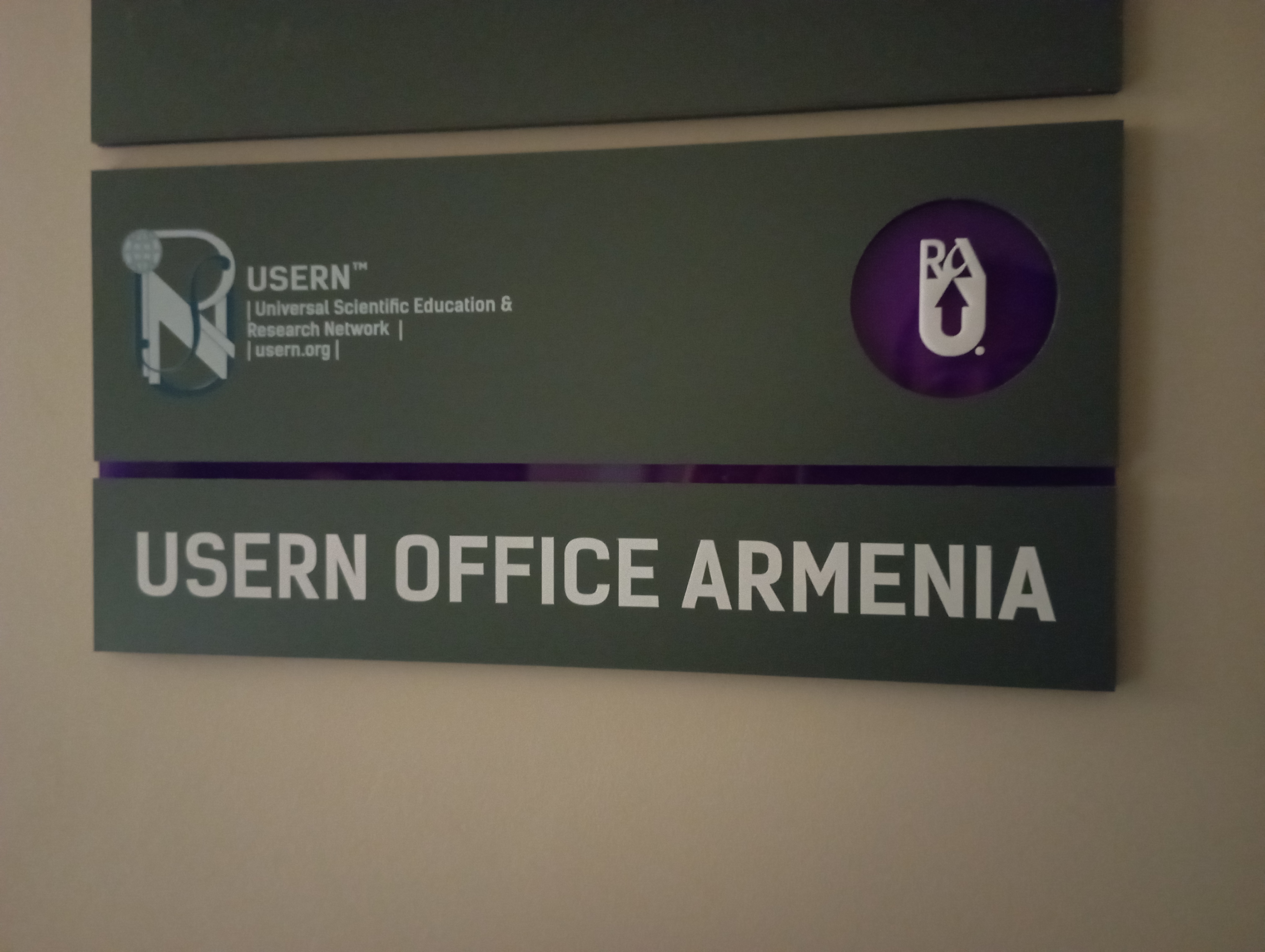
Above: the plaque at the entrance of the newly established, just-ribbon-cut office of USERN at RAU
We are helped by an advisory board that includes 620 scientists selected to be among the top 1% in scientific productivity according to the ISI index, and 20 among Nobel and Abel laureates. And being completely non-governmental and non-profit, we live by donations and by the absolutely amazing work of a cohort of young students who volunteer to make the whole thing work. Only the running of the yearly selection of prize winners, of which I talk briefly below, involves the nomination and selection of 20,000 scientists and a complex number of procedures to arrive at the winners of each year's edition, who are invited to receive a prize at the congress.
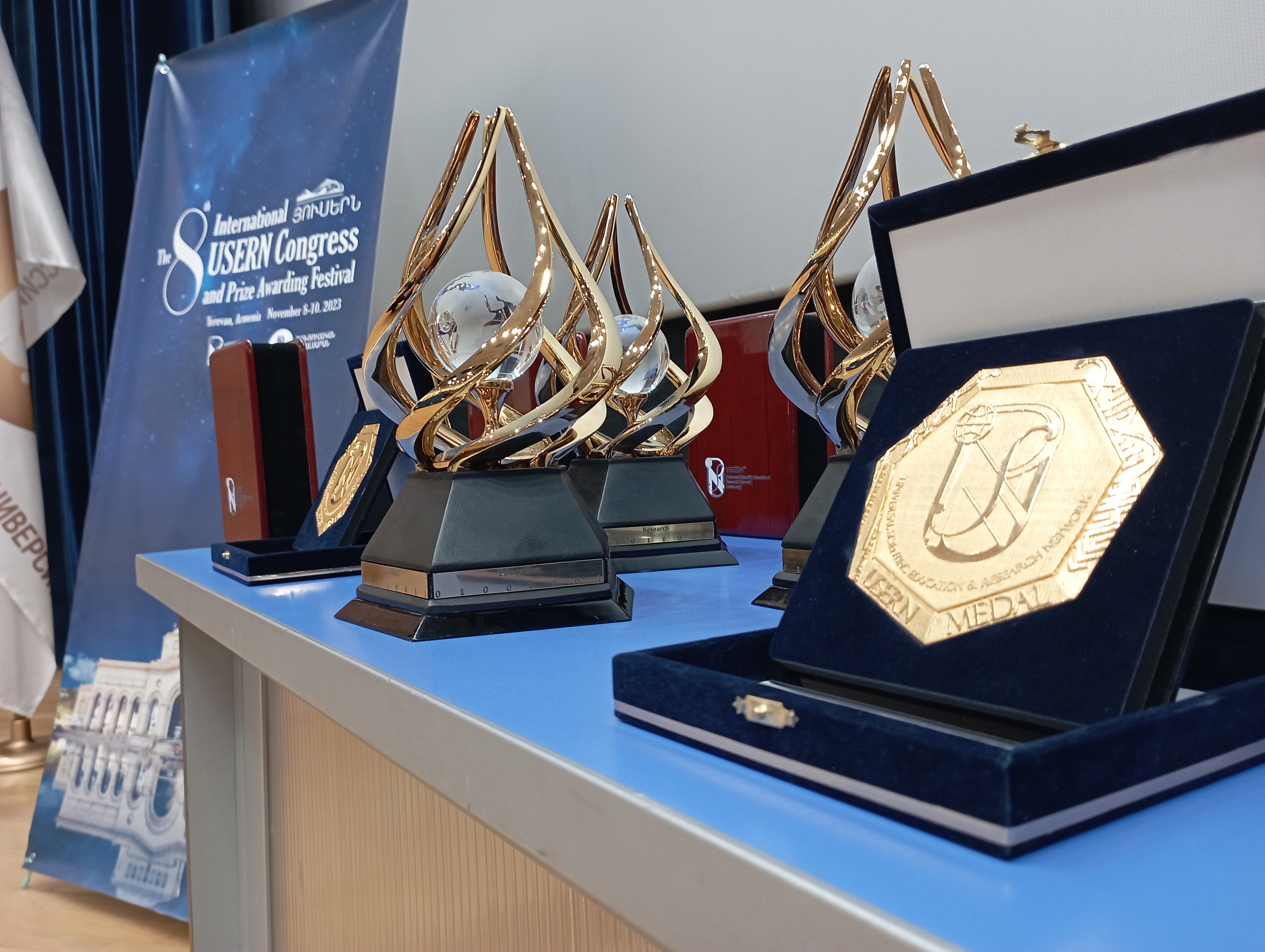
Above, the trophies and other prizes for the USERN laureates of 2023
But let me return to describe the congress, and why I am so happy about the way it turned out. Thanks to the incredible dedication and hard work of the local organizers, we managed to gather in Yerevan 180 participants, in a good part invited and partly or fully supported for their travel expenses. Many were young scientists, and for a few of them this was the first occasion to present their work in an international setting.
If we talk about science, the interaction with top 1% scientists across many disciplines and the exposition to new brilliant ideas and findings in fields as diverse as high-pressure crystallography, cancer therapy, innovative chemical solutions to global energy, pollution, and climate issues, artificial intelligence, and so on, clearly left a mark.
About art, the congress was peppered with a number of live performances. Of course music, played and sung by a large and diverse number of wonderful performers (and in addition to that, a few pieces at the piano by yours truly) in several inserts during the scientific program in the main hall, and an Indian dance.
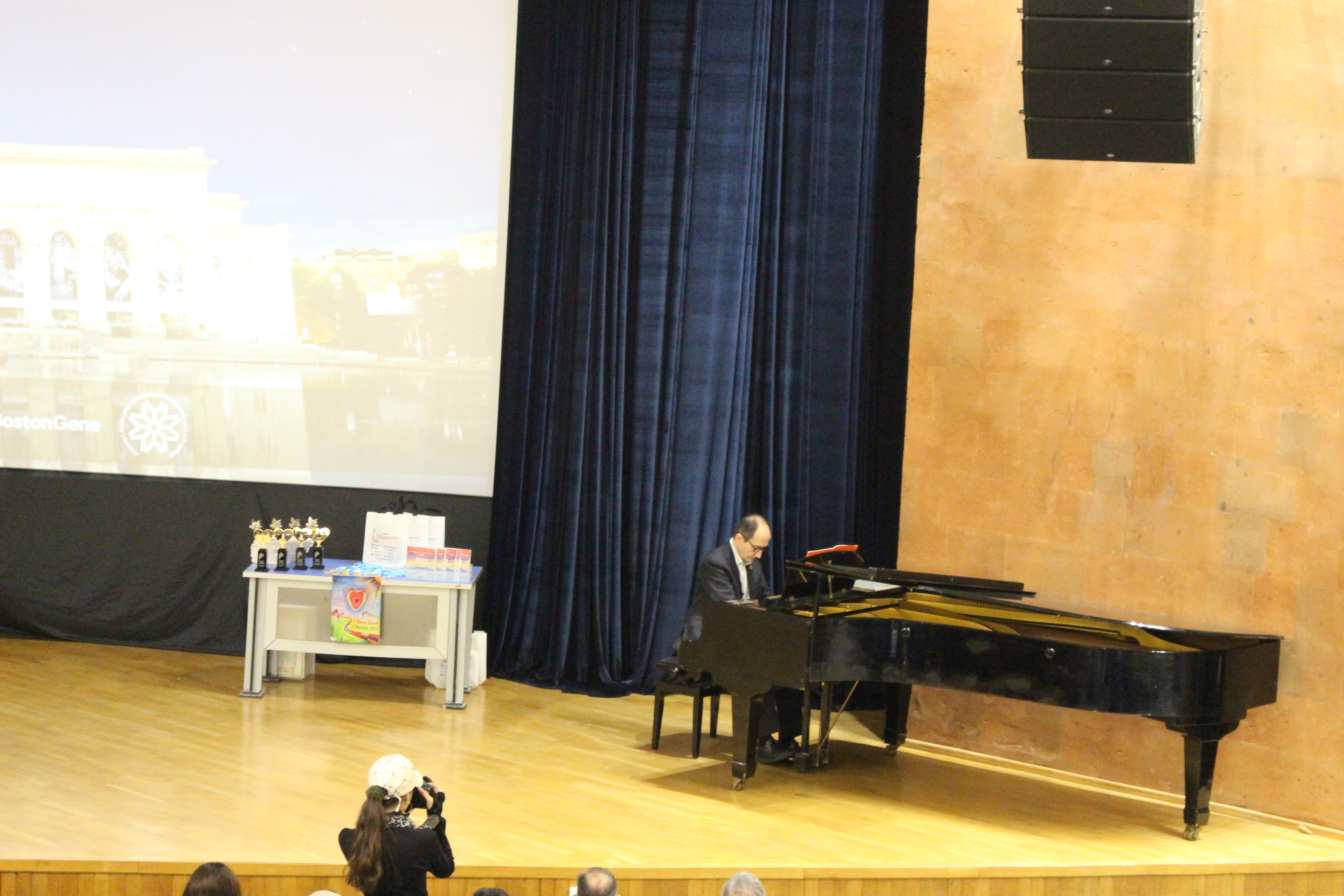
Above, that is me playing Chopin's Polonaise in Ab Major on the morning of the first day, just after my presentation of USERN
Also, each keynote talk by the prize winners was accompanied by the live performance of a painter, who would express with brushstrokes her feelings and imagination. And we had an amazing theatre performance by young talented artists who wrote and performed a play about the Alzheimer disease, "Forgetfulness", which left me hard-pressed to avoid shedding tears (it did not help that my mother died with that condition six years ago).
The USERN Congress was also the occasion, on the first day, of giving prizes to pediatric patients from hospitals around the world, who were asked to produce paintings loosely themed around human health. We managed to invite and bring to Yerevan the children who won the festival (and some runners up) in four categories (3-7 years, 7-11, 11-14, 14-17 IIRC) from many countries - including India, with some visa troubles that fortunately solved at the very end - along with their families. The selection of the best paintings among many hundreds produced by the participants was extremely challenging, and I invite you to check out how good are those of the winners by visiting the USERN web site.
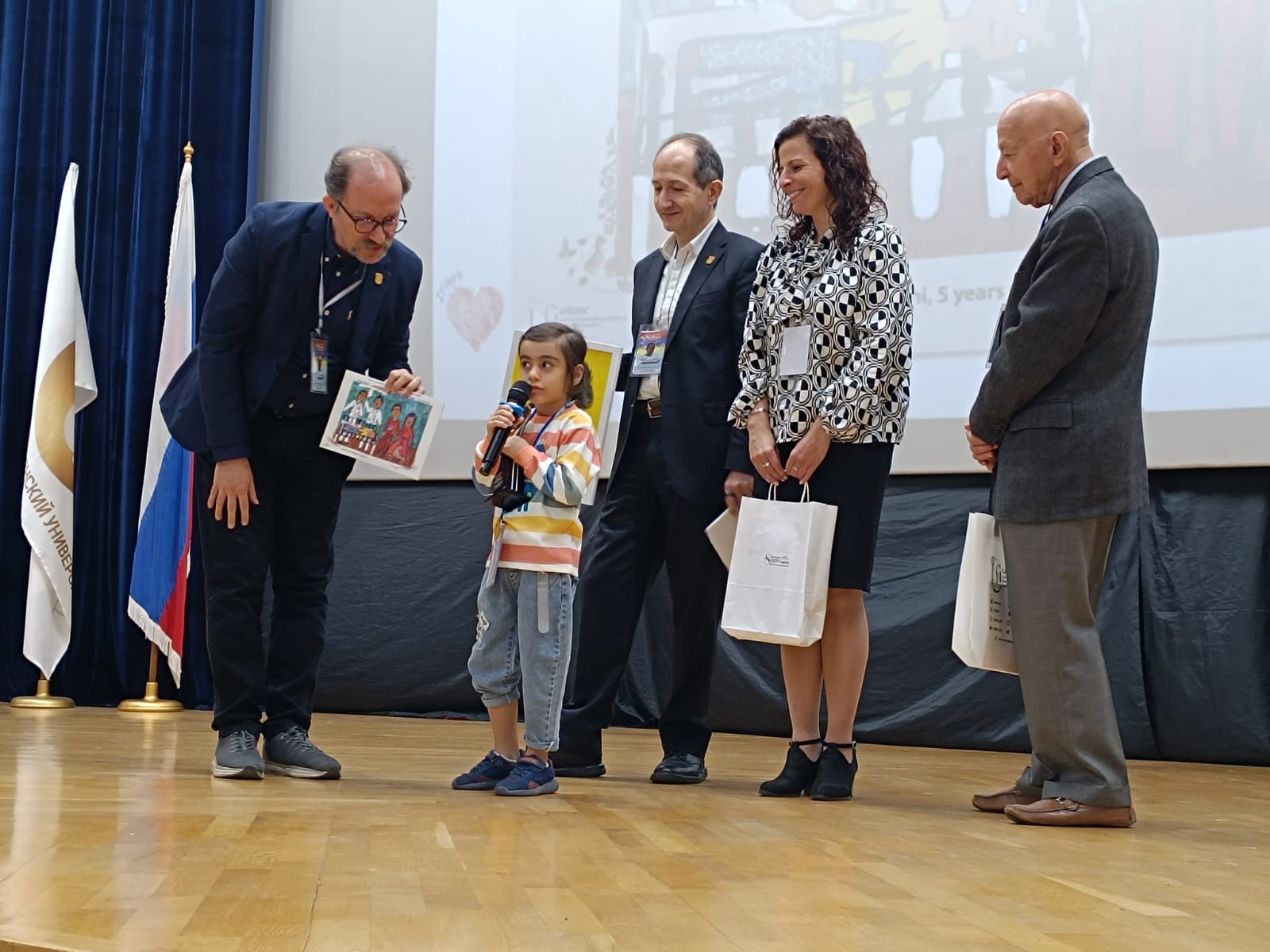
Above, USERN founder Nima Rezaei shows the picture by the winner in the youngest category. Left to right you can also spot me, the organizer Roksana Zakharyan, and Prof. Abass Alavi, a pioneer of PET scans
In the afternoon of the first day and during the second day, there were a number of parallel sessions, three poster sessions, and several mini-workshops themed on interdisciplinary subjects. During each parallel session there were three keynote talks by top scientists in many scientific disciplines, followed by about a dozen 5' talks by young researchers and students, who competed for the best presentation in each session. Jurors were asked to rate the talks by presentation/fluency/design/content in order to sort out the best ones.
Then, at the prize awarding ceremony in the last day, cash and medal+trophy prizes were awarded to under-40 scientists who excelled in research in five macro-areas. Finally, the young scientists who had given the best short talk or brought the best posters were duly presented with prizes by the indefatigable founder of USERN, Prof. Nima Rezaei, who was helped by myself and by the local organizer-in-charge, the amazing Roksana Zakharyan. Behind the scenes, the USERN executive director Niloufar Yazdanpanah ensured that every little detail checked out. Without Niloufar nothing of the above would have been possible, but in Yerevan we owe a million thanks to Roksana, Arsen Arakelyan and Sevan Iritsyan for ensuring that the congress could run smoothly and make everybody happy.
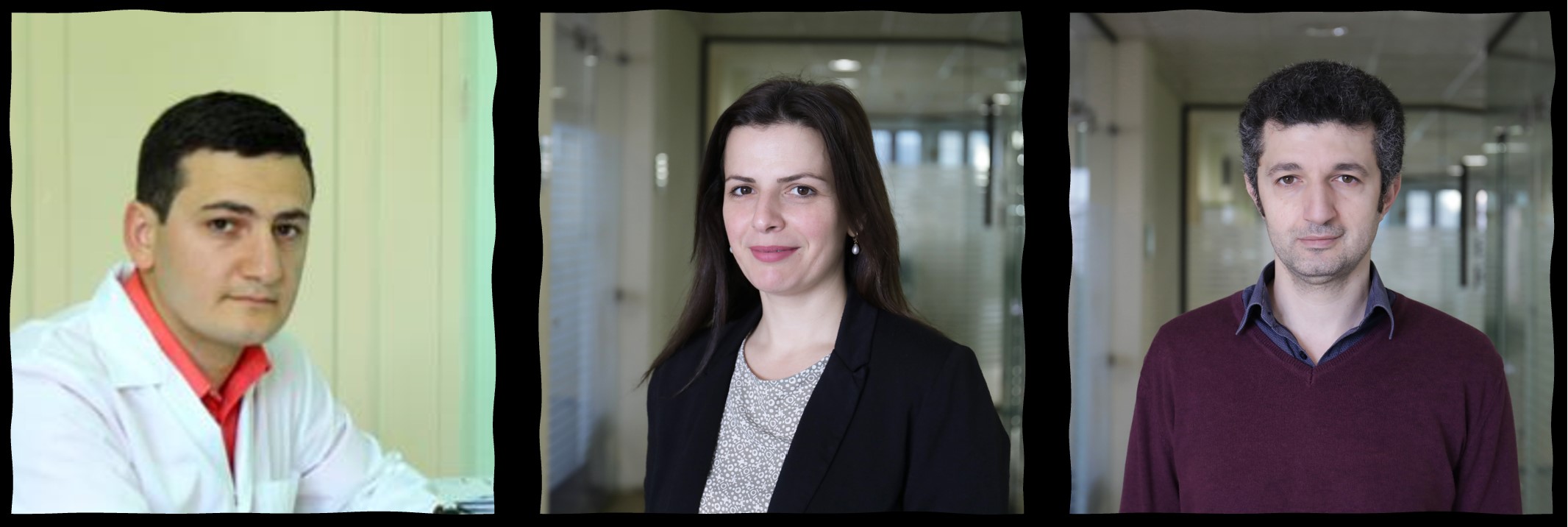
Above, the three local organizers. Left to right Sevan, Roksana, and Arsen
And I now realize that I have not yet told you why the whole thing left me filled with positive feelings and joy. The young participants were just amazing for their warmth and willingness to participate and contribute to the success of the congress, and for their crave for knowledge and enthusiasm. I think the biggest success of the event was in fact the fruitful interaction of these young researchers with the highly qualified, top-notch invited keynote speakers. I myself did not have a moment of rest in these three days, as I was constantly assailed, asked to give advice, discuss career choices, or to take a selfie with them!
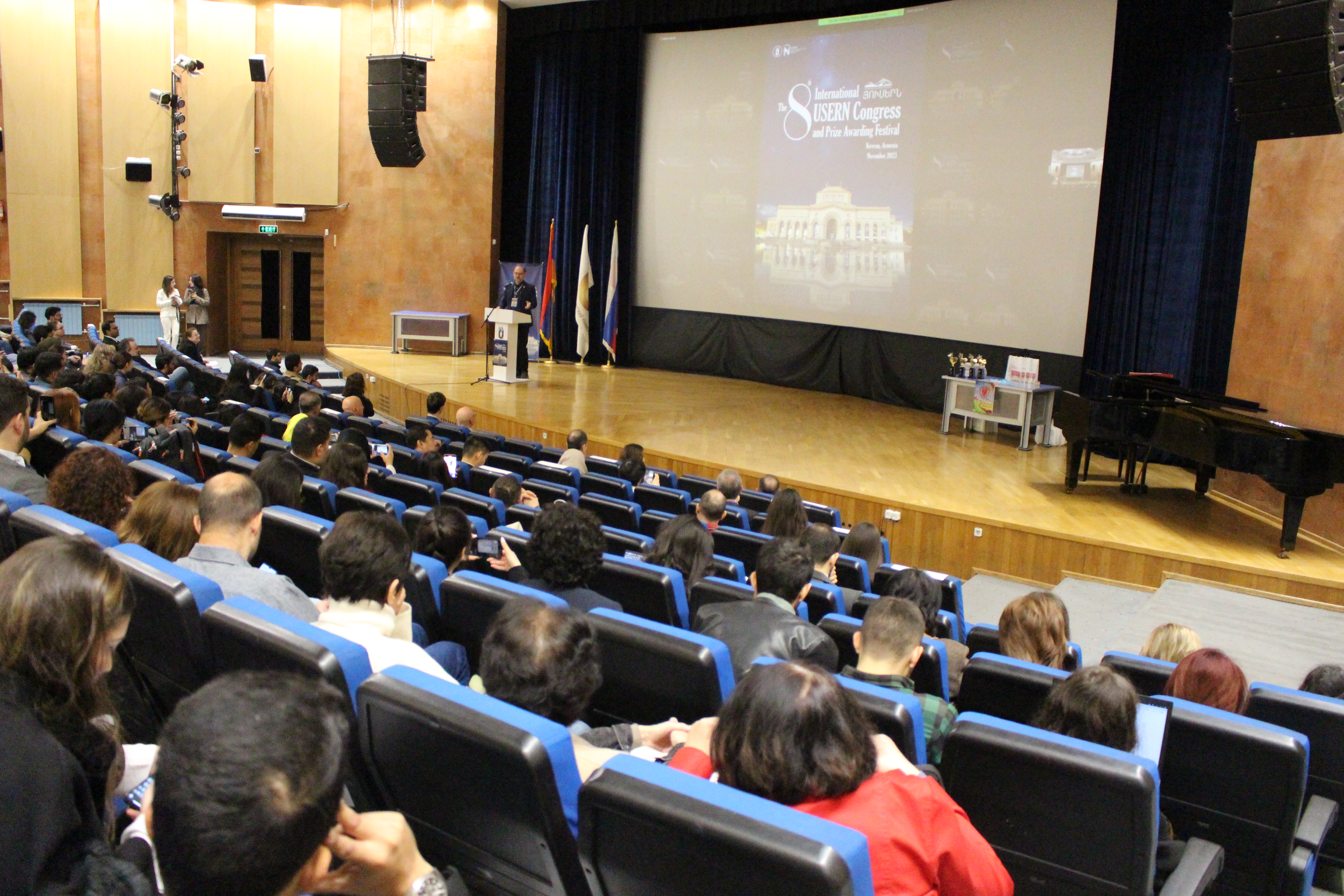
Fortunately, Nima Rezaei (above, at the podium during his opening talk) had cunningly devised appropriate "Meet the Scientist" sessions when some of us could get together with the students and young researchers, otherwise I would not have survived to the end under the constant pressure. In my session I had many of them asking me for guidance on how to best include competences in artificial intelligence in their career path. Several asked me to collaborate on research projects, and I cannot say no to this, so I will soon have to train a few of them to detector optimization or neuromorphic computing tasks!
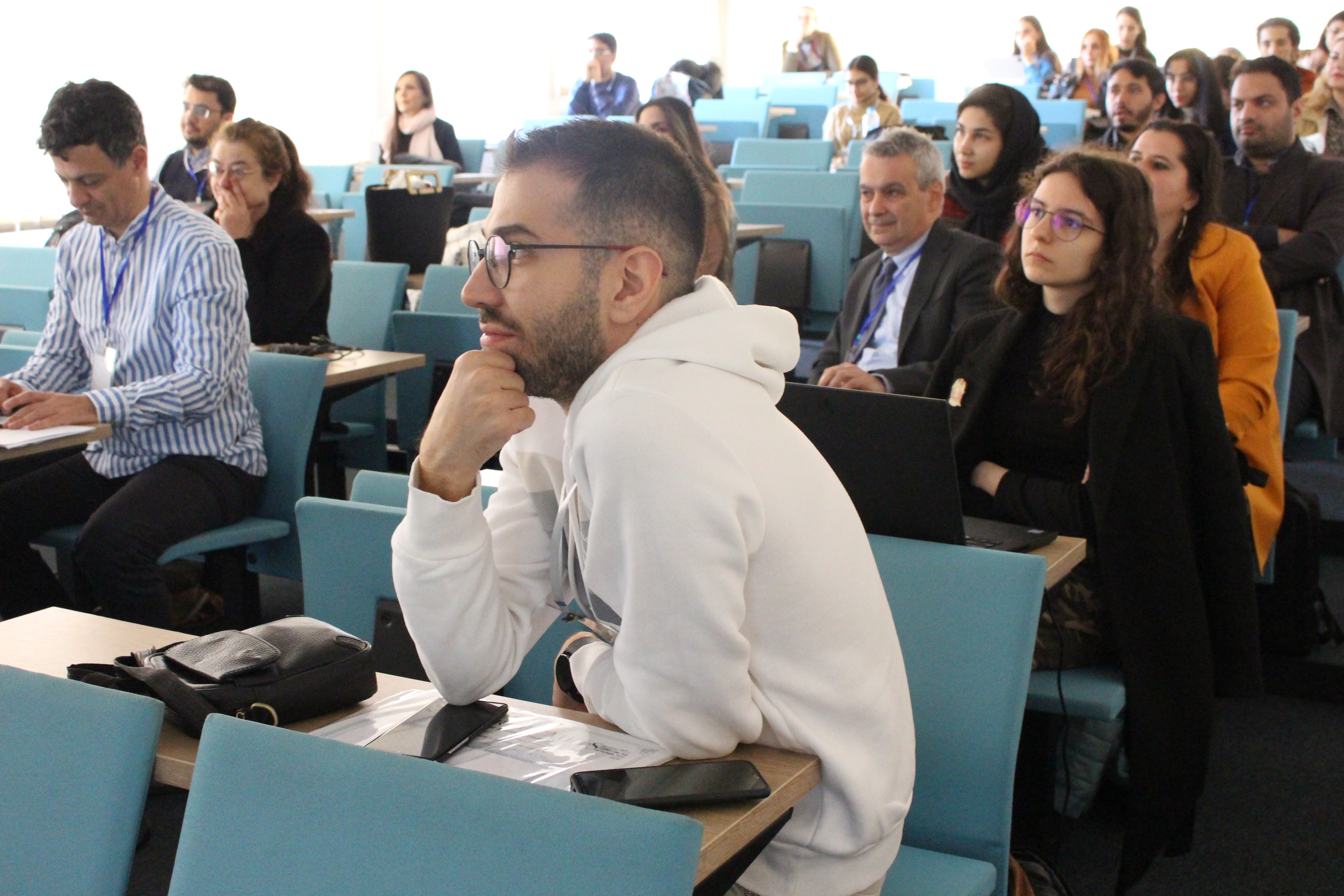
If you got to the bottom of this article, I bet you share the views of USERN on how science should be open, free of limitations from borders -between countries, disciplines, religions, or anything else that tries to divide us. Then, if you are a researcher in science, please consider joining us. The more we are, the more we can do for this just cause. And it is totally free! Also, by being a member of USERN, you can upload your CV and increase your visibility through the large network of scientists we represent; you can join interest groups, participate in common research projects, or help us grow and organize schools, events, initiatives around the world. If you travel, you can benefit from one of our many offices we have established in universities around the world. And if you want to help us more, of course you can donate to contribute to the cash prizes and research funds we give to the best scientists yearly. Thank you!



Comments